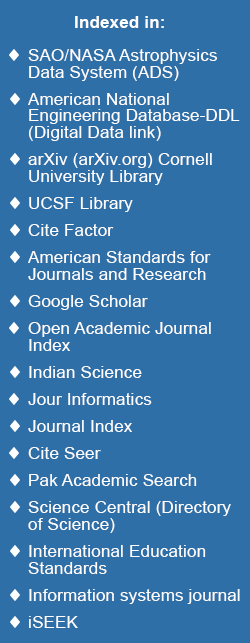ISSN : 2349-3917
American Journal of Computer Science and Information Technology
Machine Learning Advancements, Challenges, and Future Directions
Pablo Simmonds*
Department of Computer Science, University of Chile, Chile
- *Corresponding Author:
- Pablo Simmonds
Department of Computer Science,
University of Chile,
Chile,
Email: pablosimmonds45@gmail.com
Received date: April 03, 2023, Manuscript No. IPACSIT-23-16913; Editor assigned date: April 05, 2023, PreQC No. IPACSIT-23-16913(PQ); Reviewed date: April 20, 2023, QC No. IPACSIT-23-16913; Revised date: April 28, 2023, Manuscript No. IPACSIT-23-16913 (R); Published date: May 05, 2023, DOI: 10.36648/ 2349-3917.11.5.1
Citation: Simmonds P (2023) Machine Learning Advancements, Challenges, and Future Directions. Am J Compt Sci Inform Technol Vol: 11 No: 5: 001.
Introduction
Machine learning has emerged as a powerful tool for extracting meaningful insights from large volumes of data. With the advent of sophisticated algorithms and increased computational capabilities, machine learning has found applications in various domains, including healthcare, finance, transportation, and many others. This research article aims to explore the advancements, challenges, and future directions of machine learning. Deep Learning: Deep learning, a subfield of machine learning, has witnessed significant advancements in recent years. Deep neural networks with multiple layers have shown exceptional performance in tasks such as image recognition, natural language processing, and speech recognition. The availability of large labeled datasets and the development of powerful hardware, such as Graphics Processing Units (GPUs), have fueled the success of deep learning.
Advancements in Machine Learning
Reinforcement Learning: Reinforcement learning has made remarkable progress, particularly in areas like autonomous robotics and game-playing agents. Algorithms such as Deep QNetworks (DQN) and Proximal Policy Optimization (PPO) have enabled machines to learn optimal strategies through trial and error. Reinforcement learning has the potential to revolutionize various industries by creating autonomous systems that can learn from their environment. Data Quality and Availability: The success of machine learning algorithms heavily depends on the quality and availability of data. In many real-world scenarios, acquiring labeled data can be expensive, time-consuming, or even impractical. Additionally, the presence of biased or noisy data can adversely affect the performance and fairness of machine learning models. Addressing these challenges requires innovative techniques for data collection, data preprocessing, and ensuring the representativeness and diversity of the training data. One of the primary concerns with complex machine learning models is their lack of interpretability. Models such as deep neural networks are often treated as black boxes, making it challenging to understand how they arrive at their decisions. In critical domains like healthcare or finance, where interpretability is crucial, there is a growing need for developing methods that can provide explanations and insights into the decision-making process of machine learning models.
Future Directions in Machine Learning
Federated Learning: Federated learning aims to train machine learning models collaboratively without sharing raw data. Instead, models are trained locally on individual devices, and only aggregated model updates are exchanged with a central server. Federated learning holds promise for addressing privacy concerns while allowing for the creation of robust models using data from multiple sources. Further research is needed to improve the efficiency and security of federated learning algorithms. As the use of machine learning models becomes more prevalent, there is a growing demand for transparent and explainable AI systems. Research in this area focuses on developing methods that not only produce accurate predictions but also provide understandable explanations for those predictions. By enhancing interpretability, explainable AI can improve trust, accountability, and regulatory compliance in various domains. Machine learning has achieved remarkable advancements, enabling transformative applications in diverse fields. However, challenges such as data quality, interpretability, and fairness remain, requiring ongoing research efforts. The future of machine learning lies in addressing these challenges and exploring new frontiers like federated learning and explainable AI. By continually pushing the boundaries of machine learning, we can unlock its full potential and usher in a new era of intelligent systems.

Open Access Journals
- Aquaculture & Veterinary Science
- Chemistry & Chemical Sciences
- Clinical Sciences
- Engineering
- General Science
- Genetics & Molecular Biology
- Health Care & Nursing
- Immunology & Microbiology
- Materials Science
- Mathematics & Physics
- Medical Sciences
- Neurology & Psychiatry
- Oncology & Cancer Science
- Pharmaceutical Sciences
